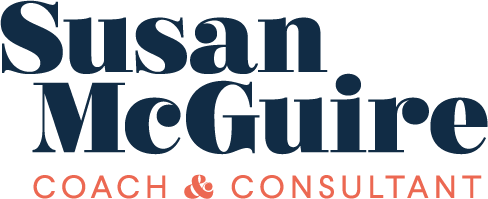We all have our own unique experiences (or baggage) from previous workplaces that influence our current behaviour and decision making. These experiences shape the way we perceive things and how we respond to them. They not only contribute to our personal growth, but also play a crucial role in shaping our future work experiences and potential for career growth. The question is: Are these experiences helping or hindering your current career potential?
Past experiences play a key role in developing the attitudes, skills, and competencies that are essential for success in the workplace. As individuals, we should reflect on our past experiences, learn from them, and use them to make conscious choices that affect our behaviour as a direct report and as a leader.
Being aware that we have preconceived ideas and biases based on our previous experiences
enables us to approach a particular situation differently.
If you have a limiting belief, you could be missing out on opportunities, such as effectively working with your colleagues and direct reports or even new job opportunities. For example, if you believe that you simply are not good with people, you are automatically limiting your ability to work with others or to be an effective leader. For example, if you tend to avoid having difficult conversations, it may be perceived as being distant, unapproachable, or even uncaring by the people around you. This isn’t what you intend, but it can be what you are portraying. If you simply label yourself as “not a people person”, you’re less likely to try to improve yourself in this area. Your limiting belief hinders your ability for career growth.
Conversely, by recognizing this as an area of growth for yourself, you have the opportunity to learn new ways to communicate, interact with your team, and deal with conflict. Removing those perceived barriers helps you become a better leader.
Preconceptions and biases can affect your behaviour. Maybe your new boss or employee reminds you of someone from your past, which involved a bad experience. Their mannerisms or mere appearance might trigger you to behave a certain way. Rationally, this should not occur, but our innate defense mechanisms take over. By identifying the root cause of your reaction, you can take the steps required to approach the situation objectively and without bias.
Here are some ways in which past experiences can impact our future experiences and career growth:
1. Shaping attitude towards work:
Our past experiences can significantly impact our attitude towards our work. For instance, if someone had a positive experience working for a supportive boss in the past, they are likely to approach their future work with a positive attitude. Do you recall having a leader who empowered, mentored, and advocated for you? I’m willing to bet you were excited to go to work, take on new challenges and probably thrived in your role.
However, suppose someone has had a negative experience with a boss who did not empower them or was unsupportive. In that case, one might approach future work experiences with reluctance and suspicion, and if put into a leadership position, may repeat the same negative behaviours.
2. Building skills and competencies:
Past experiences help in building knowledge, skills, and competencies that can be useful in future work experiences. An individual who has gained expertise through previous job roles or training will be better equipped to take on new challenges in their future work experiences.
As a leader, it is important to identify strengths and areas for growth in your team. It’s also important to know what interests or excites each person and how a new assignment or project will help develop more of what the person is looking for. No-one wants just more of the same work – it’s important that the leader shows them how their talents will be the difference maker.
Give them the opportunity to learn new skills through education, job shadowing and increased responsibility or new projects. As an added bonus, studies show that employee loyalty increases when given such opportunities for growth.
3. Developing self-awareness:
Your past experiences contribute to developing your own self-awareness. Being self-aware means taking a deeper look at your emotions, why you feel a certain way, and how your sentiments could turn into reactions. Knowing your strengths, weaknesses, triggers, motivators and other characteristics allows you to react better to situations or people who might set you off, which is a healthy skill to cultivate – especially as a leader.
When you’re aware of your emotions and how you handle them, you’re better equipped to process and work through them, avoiding unnecessary conflict. This will also help you set a good example for your team and make them more comfortable approaching you with questions or concerns.
Here are some tips for developing self awareness: Keep an open mind, stay focused and keep distractions to a minimum, know your emotional triggers, consider how your actions affect others, apologize when necessary, and ask for feedback.
- Managing workplace relationships:
Interpersonal skills are essential for success in any workplace. Past experiences can teach individuals how to deal with conflicts, communicate effectively, and build positive relationships with colleagues and superiors.Dealing with conflict in a timely fashion, encouraging open, respectful dialogue and fostering a positive workplace will help ensure your direct reports have a sense of belonging in a safe environment. If they have a good experience working as part of your team, they will know how to communicate effectively and build healthy relationships with their team members in their future careers.
Your impact as a leader can influence someone’s experience and attitude in the workplace – for better or for worse. Try to focus on the positive aspects of each role from your past, adopt them and adapt them to your own leadership style. There’s nothing more rewarding than having someone thank you years down the road for being one of the key reasons for their career success.
Is your past work experience helping or hindering your potential? I’m here to help you figure that out. Book a discovery call today.

